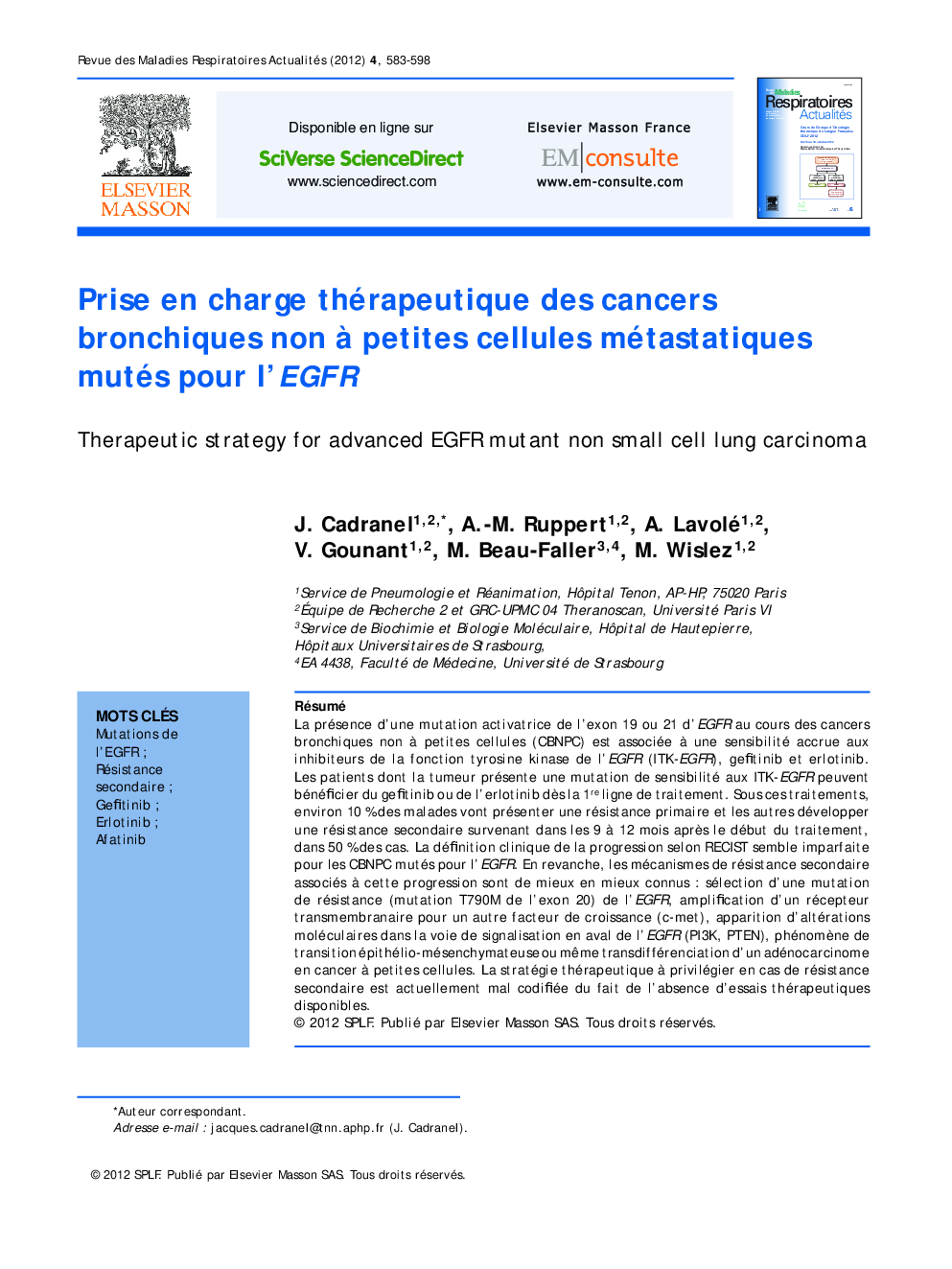| Article ID | Journal | Published Year | Pages | File Type |
|---|---|---|---|---|
| 4215922 | Revue des Maladies Respiratoires Actualités | 2012 | 16 Pages |
Abstract
EGFR exon 19 or 21 activating mutation in non small cell lung carcinoma (NSCLC) is associated with increased sensitivity to EGFR tyrosine kinas inhibitors (EGFR-ITK), gefitinib and erlotinib. Patients whose tumor expresses an EGFR activating mutation may benefit from gefitinib or erlotinib as first line treatment. About 10 % of patients will nevertheless have a primary resistance and the others will develop secondary resistance occurring in 50 % of cases after 9 to 12 months of treatment. The clinical progression as defined by RECIST seems inadequate for EGFR mutated NSCLC. However, the mechanisms of secondary resistance that support this progression have been clarified : selection of a resistance mutation of EGFR gene (T790M mutation in exon 20), amplification of a trans-membrane receptor for another growth factor (c-met), occurrence of molecular alterations in the downstream signaling pathway of EGFR (PI3K, PTEN) ; appearance of an epithelial mesenchymal transition phenomenon and even transformation of an adenocarcinoma into a small cell carcinoma. In case of secondary resistance, therapeutic strategy remains to be defined because of lack of specific trials.
Related Topics
Health Sciences
Medicine and Dentistry
Pulmonary and Respiratory Medicine
Authors
J. Cadranel, A.-M. Ruppert, A. Lavolé, V. Gounant, M. Beau-Faller, M. Wislez,
